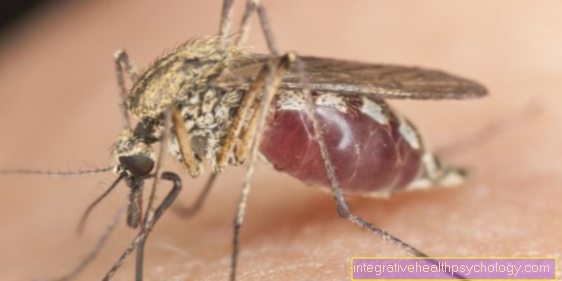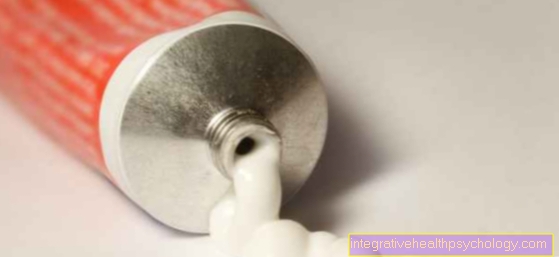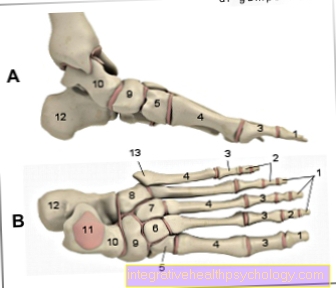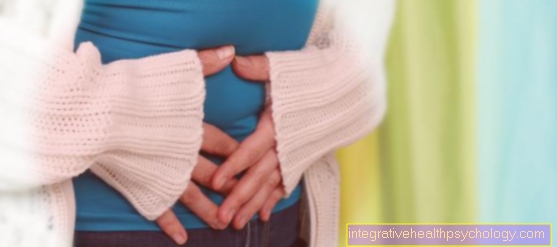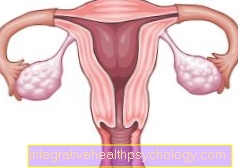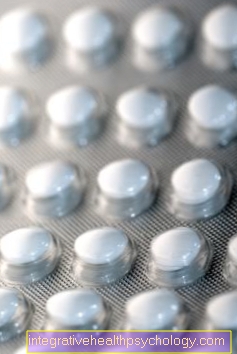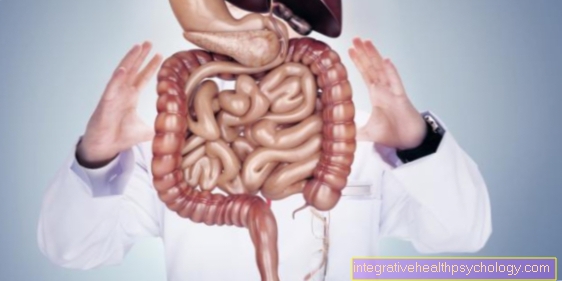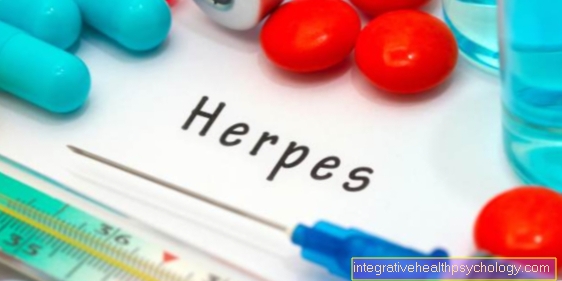Prohibited foods during pregnancy
introduction
A good and balanced diet during pregnancy is particularly important for both mother and child. Any food that the pregnant woman ingests also reaches the unborn child via the umbilical cord. Since this does not yet have fully functional organs, especially at the beginning of pregnancy (3rd to 8th week of pregnancy), the metabolism and excretion of some foods and their breakdown products is almost impossible. For this reason, during pregnancy you should pay close attention to your diet, but also to the choice of drinks.
A strict diet or one-sided diet is by no means sensible. Many women notice significant weight gain during pregnancy, but this is completely normal in the range of 8-16kg and does not require a reduction in daily food intake.

In order to be able to optimally support the development of the child in the womb, it is advisable to avoid some foods that are incompatible / forbidden for the unborn child.
This includes in particular raw animal products (e.g. raw milk) as well as unwashed fruit and vegetables. Whether foods contain raw milk can be easily seen from the information on the packaging, because all raw milk products in Germany must be labeled as such.
But pregnant women should also be particularly careful with all other raw products. They should always be washed thoroughly before consumption or, ideally, boiled, deep-fried or fried. In this way, possible harmful pathogens can be killed, which could be dangerous for the unborn child or in the worst case could even cause deformities or miscarriages.
If there are still uncertainties about the tolerability of individual foods, it is advisable to consult with the attending gynecologist or midwife.
You might also be interested in: Dietary Supplements During Pregnancy - What You Should Know!
Forbidden and allowed foods during pregnancy
Foods Prohibited During Pregnancy
- Raw milk, raw milk products (e.g. camembert, feta)
- Unwashed fruit and vegetables, ready-made salad, unheated sprouts
- Alcohol! (see: Alcohol During Pregnancy)
- Caffeine (coffee, cola, energy drinks)
- Raw meat (including salami, tea sausage)
- Raw fish (e.g. sushi)
- Meat salads without preservatives
- Raw eggs (mayonnaise, tiramisu)
- Groceries from open counters
- Ready-made sandwiches
- Offal (reduction in consumption recommended)
Foods allowed during pregnancy:
- Pasteurized dairy products
- Washed and peeled fruits and vegetables
- Cooked vegetables
- cooked meat
- Meat salads with preservatives
- Boiled eggs
- Bread, rolls, muesli
- Decaffeinated coffee, green tea
- Juices, water
- Non-alcoholic wine / beer
- Fried fish, canned fish
Risk of infection
The most common reason why many foods should be avoided by pregnant women is the associated risk of infection. Almost all uncooked and unwashed food can contain pathogens and are prohibited for pregnant women.
Read more on the subject at: Infections in pregnancy
Most of them are hardly dangerous for an adult because the mature immune system can usually fight them quickly and successfully. An unborn child, on the other hand, has only a weak immune system and is therefore helplessly exposed to the germs that are ingested by the mother through food. In most cases, it is so-called Listeria, i.e. bacteria that are particularly common in unpasteurized (not heated) animal products (e.g. raw milk) and can cause listeriosis (this is the name given to the disease from Listeria). To protect yourself from them, raw animal products should be avoided or cooked long enough.
Foods containing raw egg (salad dressing, mayonnaise, raw cake batter, tiramisu) are also prohibited during pregnancy. There is a risk that these contain salmonella (bacteria). Just like listeria, salmonella is primarily dangerous for the fetus and can even cause a miscarriage in particularly difficult courses.
Read more on the subject at: Pregnancy complications
Food promotes labor

In addition to products that can contain harmful pathogens, food that promotes labor should also be avoided in order to prevent premature labor, which can lead to premature birth.
This includes i.a. the quinine, which is mainly found in tonic water and bitter lemon.
Furthermore, some sugar substitutes can cause early labor due to their laxative effects. They are primarily found in candy and diabetic products.
Consumption of an unripe papaya is also said to cause contractions of the uterus and thus to easy labor.
A spice that should be consumed as little as possible during pregnancy is cinnamon. Due to its strong labor-inducing effect, it should only be taken at the end of pregnancy in order to induce labor when the calculated due date has already been significantly exceeded. In this case, however, the midwife should be contacted first.
The following spices are also said to have a similar effect: curry, marjoram, thyme, cloves, ginger and coriander.
Coffee consumption during pregnancy

A low consumption of coffee during pregnancy, unlike the consumption of alcohol, is not strictly prohibited. It should nevertheless take place in moderation, i.e. Do not drink more than two cups of caffeinated coffee per day (300mg of caffeine per day).
If other caffeinated beverages (green or black tea, cocoa, caffeinated soft drinks) are also consumed, the daily dose of coffee must be reduced accordingly, because it is not the coffee that is dangerous for the fetus, but the caffeine it contains. It can cross the blood-placenta barrier, i.e. the area where maternal and child blood come into contact, and in this way it enters the child's bloodstream unfiltered.
The exact extent of the damage has not yet been researched or proven; However, a connection was established between a low birth weight and heavy coffee consumption by the mother. For this reason, pregnant women are advised to keep their coffee consumption as low as possible or, if possible, to avoid the consumption of caffeine altogether.

